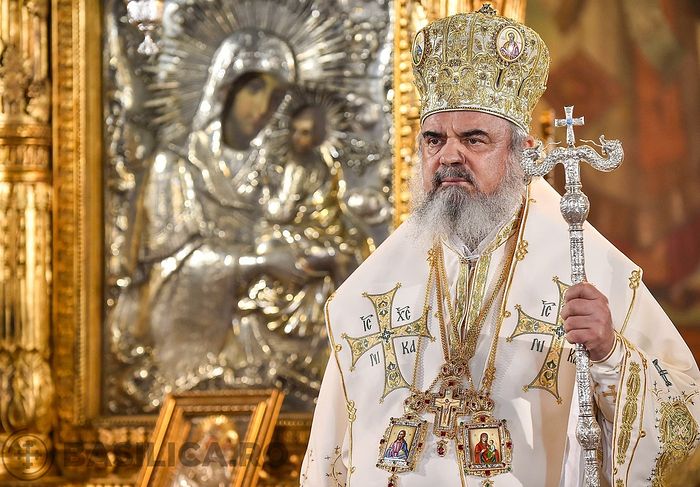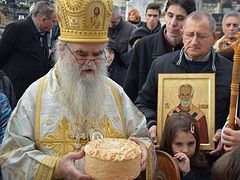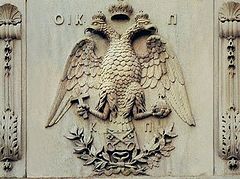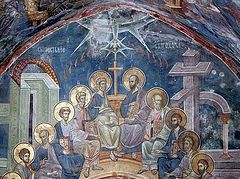It was precisely before the Romanian Holy Synod that Pat. Bartholomew first acknowledged that his unilateral actions in Ukraine contradict the previously agreed-upon synodal process.
Iaşi, Romania, January 11, 2019
A message from His Beatitude Patriarch Daniel of Romania was read out at the opening ceremony of the inaugural conference of the International Orthodox Theological Association on January 9 in Iaşi, Romania.
The theme of the conference is pan-Orthodox unity and conciliarity, and Pat. Daniel took the opportunity to call on the hundreds of theologians and scholars gathered from around the world to be vigilant in defending against attacks on the Church’s unity and to reflect more deeply upon ecclesial unity.
The Patriarch’s full message can be read at the Romanian Church’s Basilica News Agency.
The Romanian primate opens by calling for a deepening of the “great themes of the faith and of the life of the Church” in the face of its pastoral and missionary needs in a world characterized by the relativization of religious and moral values.
He notes that unity is an essential aspect of the Church, as confessed in the Creed, and thus synodality is a canonical rule and practice in the life of the Church at all levels, from the local parish to the universal level.
“If synodality is a permanent canonical norm at the local level, it must be today a permanent practice also at pan-Orthodox or universal level, not just in exceptional or in crisis situations, but in maintaining and permanently asserting the ecclesial communion and the pastoral and missionary co-responsibility of Orthodoxy in today’s world,” Pat. Daniel asserts.
Further, reflecting upon Fr. Dumitru Stăniloae’s teaching on theology as a science of salvation, the Patriarch states that, “Personal theological reflexion must be animated not by the desire for originality at any cost, but by the explanation of what is common inheritance and serving the salvation of the Church’s faithful in that time; it must stay in close intimacy with the life of prayer and ministry of the Church.”
His Beatitude also calls for a deepening of theological reflection on pan-Orthodox ecclesial unity in relation to the concrete life of ecclesial communities, emphasizing that the Holy Trinity is the “source, pattern, and purpose of the Church’s unity.”
While unity is a gift from God, it must be safeguarded by all the Orthodox faithful—hierarchs, clergy, monastics, and laity.
The Patriarch draws his message to a close by calling for deeper reflection upon synodality and primacy and pan-Orthodox responsibility, and for vigilance in the face of attacks against the Church’s unity:
At the same time, Orthodoxy needs a deeper theological reflection on the relationship between individual freedom and ecclesial communion, between academic theology and the life of parishes and monasteries, between primacy and synodality, at the local and pan-Orthodox level, between local autocephaly and pan-Orthodox co-responsibility, because autocephaly should not be confused with isolation or unity with constraint. Dialogue, mutual consultation and concrete cooperation between our autocephalous Churches must become a permanent, well-organized practice, not just isolated or conjectural events.
And he concludes: “We must constantly be vigilant so that individual or collective egotism should not undermine the holiness of ecclesial communion.”
The Patriarch’s words reflect the statement of the Romanian Holy Synod in October regarding the Ukrainian crisis, in which it called for the Moscow and Constantinople Patriarchates to work together to find a solution and “underline[d] the fact that unity is preserved through co-responsibility and cooperation between the Local Orthodox Churches, by cultivating dialogue and synodality at the pan-Orthodox level, this being a permanent necessity in the life of the Church.”
Interestingly, it was precisely before the Romanian Holy Synod in late November that Patriarch Bartholomew first openly acknowledged that his unilateral actions in Ukraine represent a repudiation of the previously agreed-upon synodal process for granting autocephaly.
Follow us on Facebook!




